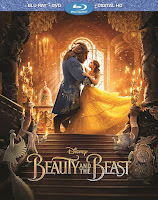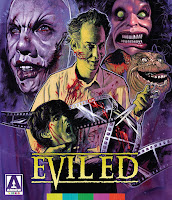the traveler's resource guide to festivals & films
a FestivalTravelNetwork.com site
part of Insider Media llc.
Reviews
June '17 Digital Week I
- Details
- Parent Category: Film and the Arts
- Category: Reviews
- Published on Wednesday, 07 June 2017 01:33
- Written by Kevin Filipski
Beauty and the Beast
(Arrow)
(Eagle Rock)
(Arrow Academy)
This concert appearance at the famed Isle of Wight Festival was the first for remaining Who members Roger Daltrey and Pete Townshend after bassist John Entwistle’s death: Roger is in strong voice and Pete is his usual cantankerous self. The excellent set list balances earlier classics from Tommy and Quadrophenia with a nice mix of latter-day tunes like “You Better You Bet” and “Eminence Front,” along with a couple of then-new songs. But why did it take 13 years for this hybrid Blu-ray/two CD version to be released? The hi-def visuals and audio are quite good.
Broadway Review—New Musical “Groundhog Day”
- Details
- Parent Category: Film and the Arts
- Category: Reviews
- Published on Tuesday, 06 June 2017 00:06
- Written by Kevin Filipski
 |
| Andy Karl in Groundhog Day (photo: Joan Marcus) |
Film Series Review—Open Roads: New Italian Cinema
- Details
- Parent Category: Film and the Arts
- Category: Reviews
- Published on Sunday, 04 June 2017 03:28
- Written by Kevin Filipski
 |
| Giovanna Mezzogiorno in Gianni Amelio's Tenderness |
The Golden Cockerel Rises to the Occasion at Lincoln Center
- Details
- Parent Category: Film and the Arts
- Category: Reviews
- Published on Saturday, 03 June 2017 14:31
- Written by Jack Angstreich

Stella Abrera in The Golden Cockerel. Photo: Rosalie O’Connor
Another peak in the current remarkable season at Lincoln Center of the American Ballet Theater was the thrilling revival of The Golden Cockerel, one of the most fully satisfying productions in the company's repertory, which I attended on the evening of Thursday, June 1st. The ingenious and witty choreography is by Artist in Residence Alexei Ratmansky—the finest dance creator of his generation—inspired by the original production by the legendary Michel Fokine, while the marvelous score is by the unsurpassed colorist, Nikolai Rimsky-Korsakov. The terrific set and costume design is by Richard Hudson, inspired by the originals of the great Natalia Goncharov.
The cast was equally extraordinary , featuring the lovely Stella Abrera—who was superb the previous week in the New York premiere of Ratmansky's Whipped Cream —who wasexcellentas the alluring Queen of Shemakhan, and James Whiteside at his hammy best as the Astrologer. Most dazzling of all, however, was Skylar Brandt, replacing Cassandra Trenary, in the title role, which will surely prove to be one of the greatest performances of the season.
The secondary cast was also exquisite—above all as seen in the brilliant turns by the stellar Jeffrey Cirio and Joseph Gorak (who was memorable the previous week in Giselle) as the Princes Guidon and Afron respectively. The splendid Christine Shevchenko was faultless as the leading Persian Woman and received expert support from Joo Won Ahn and Patrick Frenette as the Persian Men. Roman Zhurbin was an effective comic presence in the character role of Tsar Dodon. And the elegant precision of thecorps de ballet once again astonished.
More Articles...
Newsletter Sign Up















